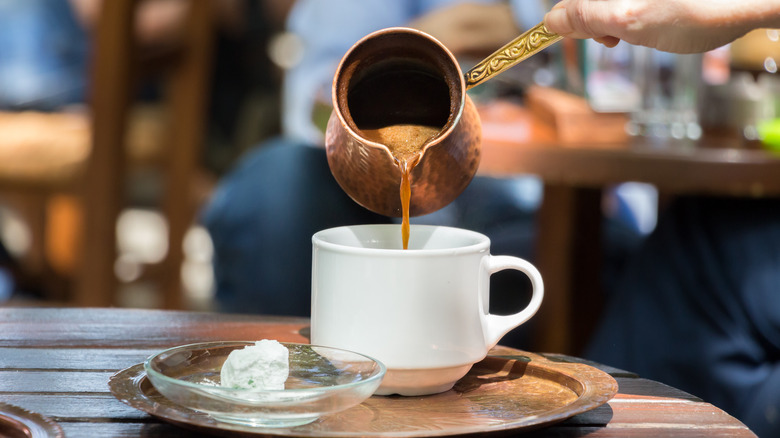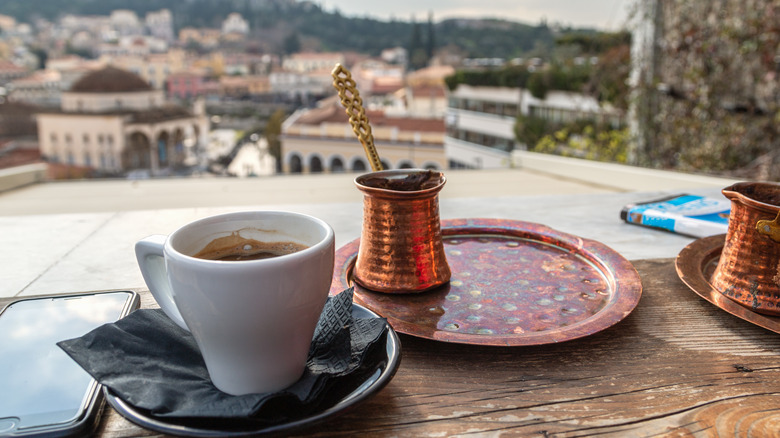Why Greek-Style Coffee Might Be Better For You Than Regular Coffee
Many people enjoy a daily cup of joe (or two or three), but research suggests that swapping out your normal coffee for Greek-style coffee might offer health benefits. According to Science Daily, a 2013 study looked for a connection between the diet and life spans of the Greek residents of the island of Ikaria, who statistically lead longer and healthier lives than many other people on the planet. Researchers specifically investigated the island's elderly population's coffee-drinking habits.
The study found that nearly 90% of study participants consumed boiled, Greek coffee daily and those that did showed better endothelial function. Endothelial cells, according to Cedars-Sinai, "release substances that control vascular relaxation and contraction as well as enzymes that control blood clotting, immune function, and platelet (a colorless substance in the blood) adhesion." Endothelial dysfunction can lead to serious health problems such as stroke and heart attacks.
The Greek coffee, researchers noted, was richer in polyphenols and antioxidants and lower in caffeine than other types of coffee. The study participants who drank other types of coffee daily did not show the same level of endothelial function. However, the authors of the study noted that more research was needed to pinpoint how Greek coffee could be benefiting the residents if indeed it is.
How is Greek coffee different?
Don't make the mistake of thinking that Greek coffee is different because of the coffee beans used, though. Greek coffee is made from Arabica coffee beans, as the Greek National Tourism Organisation explains. It's very similar to the coffee used in surrounding countries, such as Turkey, Cyprus, Serbia, and Bosnia. The difference between Greek coffee and the coffee you order at Starbucks all lies in the preparation.
Greek coffee is boiled in water and sugar in a stovetop coffee pot. Once the coffee foams, it's removed from the heat, cooled slightly, and then heated until foaming again. The coffee is poured into a cup, where the grounds are allowed to sink o the bottom. Typically, Greek coffee is served black, with a glass of water, in a small cup you might associate with espresso. Often, Greek coffee is enjoyed in a social setting, over the course of a few hours, a fact that's led some to speculate that the social and laid-back lifestyle that Ikariots enjoy can be just as much to credit for their longevity as the coffee.

